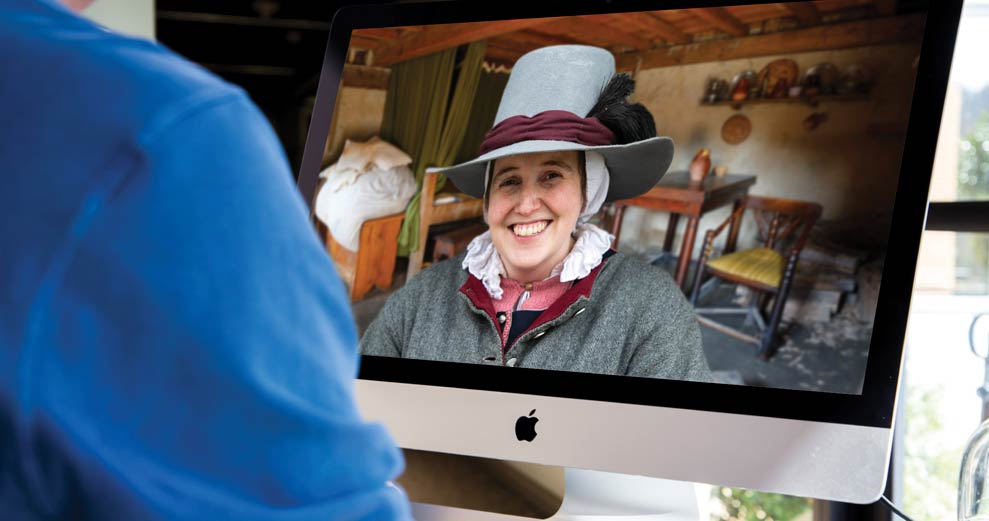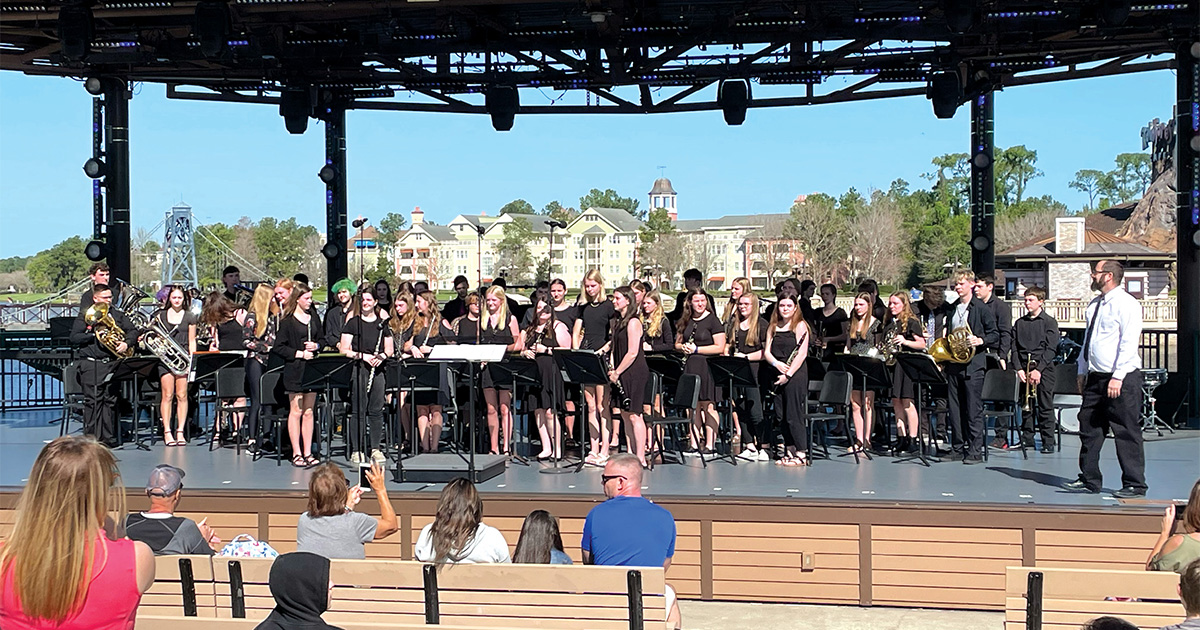If there’s any plus side to living in a global pandemic in 2021, it’s that we’ve never been more equipped technologically to carry on with life and education.
All over the world, educators and destinations are making use of virtual learning to keep students connected. Leading the charge is Plimoth Patuxet Museums (formerly Plimoth Plantation) in Plymouth, Massachusetts—one of America’s oldest historic destinations.
The living history museum utilizes role players and educators to reenact life in the 17th-century Plymouth Colony and the interactions between the English colonists and the Patuxet band of the Wampanoag tribe, relying on first-hand records, artifacts, oral tradition, and research. Luckily, these figures from the past have figured out how to use video chat and are happy to teach your students about the life and history of America’s origins.
For years, Plimoth has been leaving the 1600s to head into classrooms with its Outreach Programs, even flying educators across the country to give students an in-person experience. The only difference now? Those experiences are virtual.
The museum is staying up to date with the times, constantly researching new information and uncovering new information. As Plimoth’s material says, “For centuries, the stories of Indigenous and colonial communities, like Patuxet and Plymouth, have been told in isolation, implying little to no cross-cultural interaction. But new research by archaeologists and historians reveals far more integrated communities.”
It’s not just about the Pilgrims—these virtual programs enable students from across the country to explore the ancient homelands of the Indigenous people of the northeast, as well as the new lives begun on the shores by Mayflower’s passengers, and their complex interactions.
All of Plimoth’s Wampanoag programs are led by Wampanoag and Indigenous educators, discussing thousands of years of Native history, including how disease devastated the community of Patuxet.
Plimoth’s History @ Home™ program is specifically geared toward remote learning. There are virtual programs and workshops, both interactive and educational. Discover the truth of Thanksgiving, the 12,000-year history of the Wampanoag tribe, the life of a Pilgrim and more!
These engaging, interactive history programs offer students the opportunity to experience the 1600s from a unique, individual perspective, allowing students to foster empathy and understanding of communities in the past. Whether you’re a teacher, a homeschooler, or run any education group, you’re welcome to reach out.
Visit plimoth.org for all the information you need to start your virtual learning program.
Photo courtesy of Plimoth Patuxet Museums.





